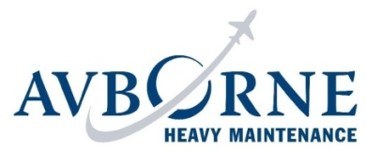What Boards Need For Effective Governance
June 7, 2021
See the photo above? Do you see the problem with it?
16 seats.
Even number.
Boards should have critical mass and be comprised ideally of an odd number (5,7,9,11, e.g.) so as to facilitate majority voting.
But that’s just one thing to keep in mind about boards.
I’ve had the good fortune to work with boards, serve on them, advise them, and report to them. I’ve also recruited board members, relieved some of their duties, and have seen a plentitude of varying results from a cast of characters along a continuum of excellence and exponential results on one extreme, to board members driving their personal agendas and behaving like meddling, undermining in-laws on the other.
There are varying perspectives and opinions on the value of a board.
Whether it’s a publicly held company, a family business, or a private equity run business, a board must be properly structured to govern and empower the business to optimum outcomes.
Boards, like organizations themselves, come in all shapes and sizes and serve various functions. There are Boards of Directors, and Advisory Boards, for example. Directors generally have very different personal and collective liabilities and exposures, as compared with advisors, for example.
Regulations vary by jurisdiction as far as the fiduciary and liability responsibilities of directors. The root of the word fiduciary has various origins and meanings (for example, the Italian word for “trust” is fiducia), but commonly defined as one or more of the following:
- Trust
- Confidence
- Assurance
- Reliance
- Boldness
- Courage
- Pledge
The connotation is financial responsibility, but it doesn’t end there. Fiduciary responsibility carries with it not just liability and care and control, but the responsibility to be engaged in the organization, empowering and supporting management, and not just be a policy gatekeeper or budget goalie.
Boards must add, not detract, value. They must empower, not constrain. They must be trustworthy, sensible, and logical. They should learn and teach. They should advise and coach. Boards must be brutally honest and completely objective.
For many years I worked for a highly regulated, publicly held company and there was much I learned there about organizational behavior, accountability and structure. In preparation for board meetings, our team had many reports, summaries and other snapshots of operations to get our directors up to speed. I learned from our CEO and senior team the importance of having a board, but also the importance of engaging those board members in the core of operations, so they could better serve the company and do their jobs.
Their primary job was to oversee the finances, operations, and governance of the company, to keep it out of hot water, and to grow the business strategically. There were shareholders, regulators, employees, vendors, customers, retirees, and other stakeholders to manage. The company was a highly visible one, and the board had both deep and wide responsibility. Board members were well compensated, well fed, but well challenged, well informed and they were never bored.
Boards should never be bored. That’s a ticking time bomb. Apathy is the enemy of growth.
Board members should be people whose reputations and integrity are impeccable, whose objectivity prevails, and whose commitment to the success of the organization is paramount. Board members should not be bureaucrats, place holders, rubber stamps or “yes men or women.” They should not be vitriolic, vindictive or threatened. They must be mature, and like judges, must keep biases and self-interest out of the equation.
In the case of the public sector, the appointments need to make sense and not be strictly politically motivated. For example, there should be minimum educational requirements for one to serve on a board of an educational institution or a school committee, e.g.
Board service should be contextual, and balanced. A biotech company will need a variety of people who know how to run businesses, to complement the scientists, pharmacists, professors or doctors who’ve never worried about making payroll or don’t really know how to ensure sustainability and profitability of an enterprise.
Two CEO’s said this: “Lead, follow, or get the hell out of the way” — they were Lee Iacocca, and Ted Turner
A good rule of thumb with governance is that the people responsible for making individual, committee, group, quorum or majority decisions affecting the organization should, well, know what the heck they are looking at. A lack of understanding and aloof posture (I’m on the board so I must know more than the people actually working all day running the organization or its departments or divisions…e.g.) can get the organization in trouble through a sheer lack of clear optics on the financial and operational business metrics.
Boards should be diverse, in many respects. They should be varied in background and every other dimension possible, gender, race, creed, industry, mindset, e.g. But they should be comprised of people with some experience relevant to the company or organization itself.
Boards should run on objectivity, yet the members must exhibit a thirst for knowledge, and passion and enthusiasm. Board members should be immersed in every imaginable facet of the company (or organization) and know the business, industry, stakeholders, or cause as well as the employees who work there.
Whether they be Robert’s Rules of Order or some other paradigm or construct, there should be clear agendas, clear protocol (motions, seconds, votes, adjournments, special meetings, e.g.) and modus operandi for the group. There should always be minutes to memorialize what transpired and what was discussed, and there should be specific follow up action items to complete with specific time frames attached.
Boards should set objective, strategic priorities through plurality of discussion, supported by a review of data and clear understanding of the business of the organization. Boards should keep the CEO accountable, but motivated. Should provide clear rewards and incentives at all levels of the organization they govern.
Most importantly, there ought to be truth, candor and focus.
They must not be bored members. No pomp and circumstance, no celebratory mutual appreciation society.
- Leadership. In good times and bad.
- Passion over apathy.
- Results over agendas.
- Hard work over ceremony.
- Collaboration over antipathy.
Nominate, choose, elect, re-elect, carefully.
And, no, no yes-men or yes-women.
As we say, it’s necessary to have “Objective Perspective.”



































































































































































































